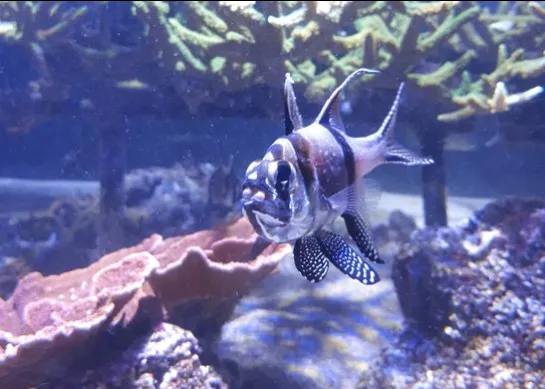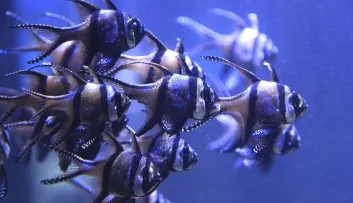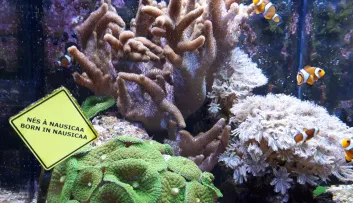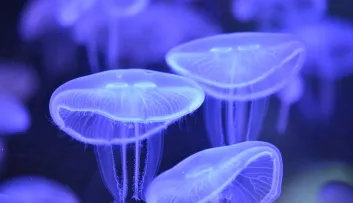The Banggaï cardinalfish, a real superdad!
In order to breed, the male Banggaï cardinalfish recovers the fertilised eggs and stores them in its mouth until they hatch.
- 2mn read

Tell me little Banggaï cardinalfish, why do you have such a big mouth?
The male Banggaï cardinalfish can be distinguished from the females by their wider mouth which provides the space they need to store their progeny. This little fish, no more than 8cm long, can incubate between 30 and 40 eggs in its mouth!
This is known as paternal oral incubation.
The Banggaï cardinalfish doesn’t eat with its mouth full!
The male Banggaï cardinalfish, which usually feeds on zooplankton and small invertebrates, doesn’t eat during the incubation period. The eggs stay in its mouth for around 20 to 30 days, and the male turns them over regularly in order to eliminate the dead embryos.
Once they have hatched, the male keeps the 7mm-long fry for a few days more in its mouth. The young fish can then leave the male’s mouth safely to go to a neighbouring sea urchin or sea anemone where they will grow, protected by the spines or tentacles of their new home.

The cardinalfish at Nausicaá
On show at Nausicaá in the Coral Jungle space of the Mankind and Shores exhibition, these little black and silver striped fish live in small groups close to an urchin or a sea anemone. This group formation makes them look like a large marine animal allowing them to deceive their predators.
Peaceful by nature, the Banggaï cardinalfish nevertheless shows a certain degree of aggressiveness with respect to its peers until a certain hierarchy is established in the group.


